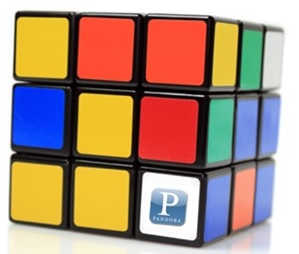The holiday season is the time of year to reflect back. And that’s what we’ve done the past several years on this blog. Analytics tell us the most-read posts of the past year, and in most cases, those numbers are very telling. They almost always reveal some of the best, most thought-provoking entries.
This post is almost one year-old, and one of the best things about it is that I did not write it. UK Radio Futurist was the author of a post that generated a lot of comments. It addressed that ongoing issue about how the broadcast radio defines Pandora, and perhaps as importantly, defines itself. It seems that everybody is using the R-word these days, and James provided some great perspective about how to navigate the ever-changing world of audio entertainment. – FJ
 I first saw James Cridland speak at “Convergence” a few years back and immediately knew that we had to get him on the Jacobs Summit roster the following December. You may recall his mantra was that “radio needs to speak in one voice” in order to achieve true effectiveness in an increasingly cluttered and competitive media environment. Last week, the Rubik’s Cube that is Pandora generated a great deal of discussion on this blog. James weighed in with a great comment that appears in expanded form below. It is always beneficial for us in the States to hear from passionate broadcasters from around the world. So here goes… – FJ
I first saw James Cridland speak at “Convergence” a few years back and immediately knew that we had to get him on the Jacobs Summit roster the following December. You may recall his mantra was that “radio needs to speak in one voice” in order to achieve true effectiveness in an increasingly cluttered and competitive media environment. Last week, the Rubik’s Cube that is Pandora generated a great deal of discussion on this blog. James weighed in with a great comment that appears in expanded form below. It is always beneficial for us in the States to hear from passionate broadcasters from around the world. So here goes… – FJ
We in the radio industry know what radio is. It is companionship, it is emotional. It is a human connection with the presenter and other listeners. It is full of powerful stories, as Valerie Geller is keen to remind us. That powerful story might be a hard-hitting feature on a local NPR station; but it could also be an equally powerful story from the local breakfast team about their day yesterday, inspired by a listener’s tweet.
Pandora is not radio. Pandora is just a soulless, poorly-executed, music jukebox. Pandora wants people to think they’re radio, because people love radio, and advertisers understand radio’s power and connection: but they are not radio. Instead, they are attempting to redefine “radio” as some kind of music jukebox. As Fred’s post showed, they have succeeded.
We, the radio industry, have sat idly by as companies like Pandora, Slacker, Apple and others have christened their inferior product “radio.” They have stolen our brand. It has already caused us immeasurable damage. We are fools for letting that happen.
 Saying that “Pandora is not radio” is not a naive view. It isn’t ignoring the challenge that companies like Pandora represent. We should not shirk from challenging Pandora on why they wish to use our brand to sell their soulless jukebox: since by redefining radio, they are doing listeners a disservice. They are promising something that they are not, and damaging radio’s brand in the process.
Saying that “Pandora is not radio” is not a naive view. It isn’t ignoring the challenge that companies like Pandora represent. We should not shirk from challenging Pandora on why they wish to use our brand to sell their soulless jukebox: since by redefining radio, they are doing listeners a disservice. They are promising something that they are not, and damaging radio’s brand in the process.
The sad truth is that many radio operators have, over the past ten years, already redefined “radio.” Many stations operate as virtual music jukeboxes: devoid of any human connection other than a bright, breezy and voicetracked “personality” who has never lived in your community, has no connection with you or your life, and only seems eager to tell us the station name and promote the networked breakfast show.
“Radio,” according to these stations, is some kind of personal hell for the Pandora generation: forcing you to listen to someone else’s Pandora channel, but covering up the “thumbs down” button. If the only thing “radio” stations offer is non-stop music, Pandora will win every time.
Pandora’s soulless music jukebox is teaching a generation of listeners that radio is just a jumble of songs, and nothing more. But some in the radio industry are equally guilty of ruining radio’s reputation. We are fools for letting that happen.
Pandora is not radio. Is today’s radio industry truly “radio,” too?
James Cridland is a radio futurologist: a speaker and writer about radio’s future. He lives in London, and his website is https://james.cridland.net/.
- Media And Technology In 2025: Believe It Or Not! - April 18, 2025
- In Radio, You Just Never Know - April 17, 2025
- The Secret To Making A Great Podcast (And Great Radio) - April 16, 2025




Leave a Reply